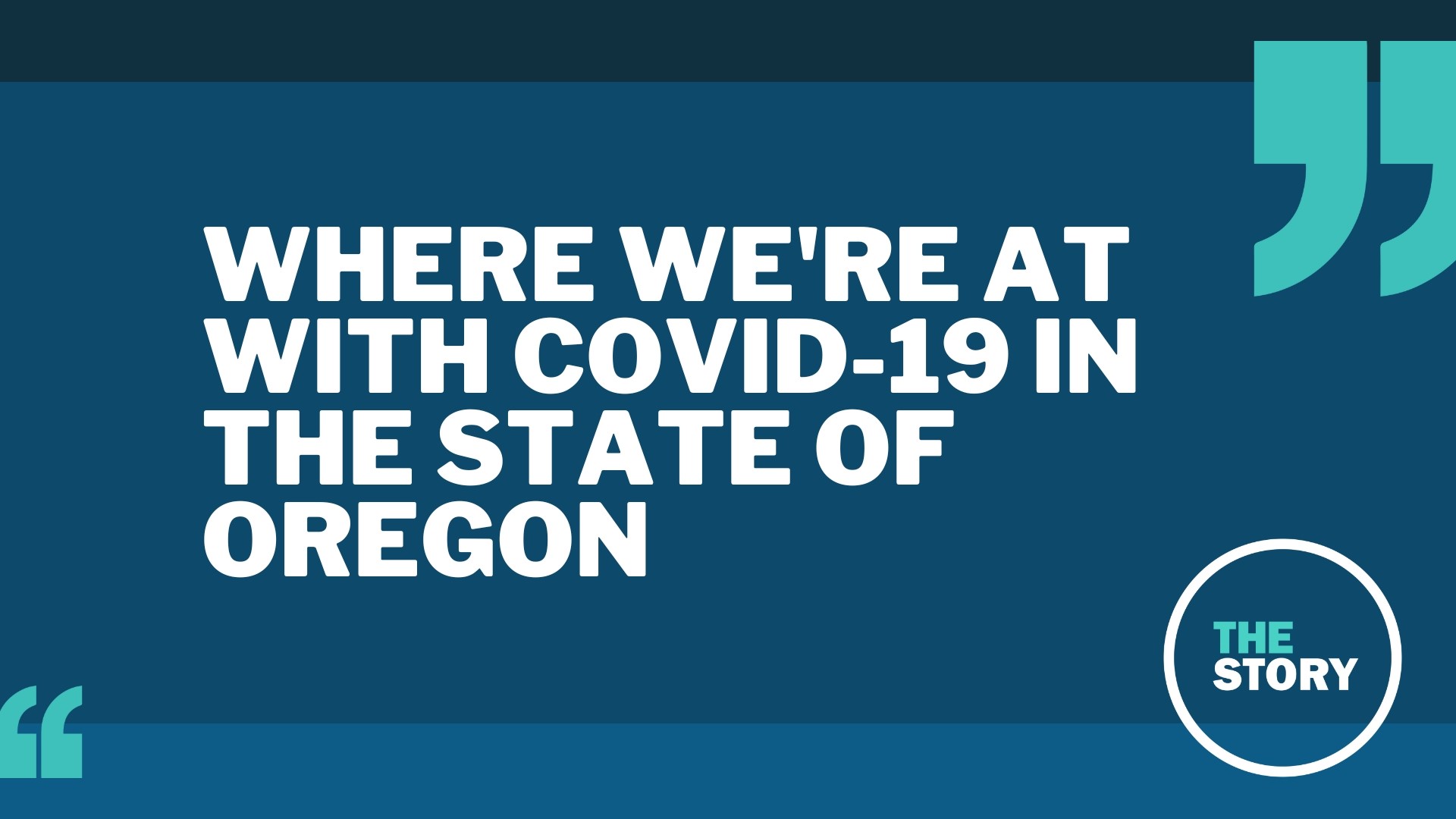SALEM, Ore. — It's been nearly three years since the first confirmed case of COVID-19 in Oregon, back when health authority press releases still called it a case of the "novel coronavirus."
The Oregon Health Authority has been holding regular press conferences ever since, giving updates on case numbers, variants, vaccines, masking and more. The latest update was last week, offering a picture of where things stand now.
State epidemiologist Dr. Dean Sidelinger discussed the impact of the latest XBB.1.5 omicron variant on test positivity rates and hospitalizations, and he also raised the prospect of ending mask requirements in health care settings.
Oregon and Washington are on a short list of just 14 states that still require people to wear face masks in certain settings — mainly health care facilities like hospitals and clinics.
Those requirements could be going away in the coming months if vaccination trends continue in the right direction, Sidelinger said, describing the state as being in the "formal wind-down" of its pandemic response, with positive changes toward a "new normal" with COVID-19.
Along with vaccination trends, OHA will look at other factors before lifting those final mask mandates, including whether or not COVID-19 develops into something that comes in seasonal waves, like other viruses.
"We don't yet know if COVID-19 is seasonal, but we have seen large peaks for the winter and we anticipate that will go down in the spring," Sidelinger said.
Another topic discussed at the meeting was the end of federal emergency declarations related to pandemic policy, including things like free vaccinations, free testing and waiving some out-of-pocket expenses.
Those declarations will expire in May. OHA said there won't be overnight changes to things like free vaccines — but still, for anyone looking to catch up on their vaccine regimen: the sooner you get it, the better.
People should also stock up on at-home COVID test kits while they can still be found for free, according to OHA guidance. Medicaid and Medicare recipients don't need to worry — their kits and other COVID-related medical expenses will still be covered after the federal emergency ends. But those with private insurance may want to scoop up a few tests to hang on to.
Changes are also on the way for how people will access drugs used to fight COVID once they've already got it. For example, Sidelinger said, on Feb. 1 the U.S. Food and Drug Administration removed a requirement for a positive COVID-19 test result prior to prescribing the antiviral medications Paxlovid and Lagevrio, which reduce the risk for severe COVID infection.
The change was made to acknowledge the limited accuracy of COVID-19 tests and allows providers to consider symptoms, exposure history and risk factors for severe disease when diagnosing and treating COVID-19 infection, he said.
OHA officials said eliminating that red tape when it comes to access to treatment is critical, especially since hospitals still don't have enough workers.

